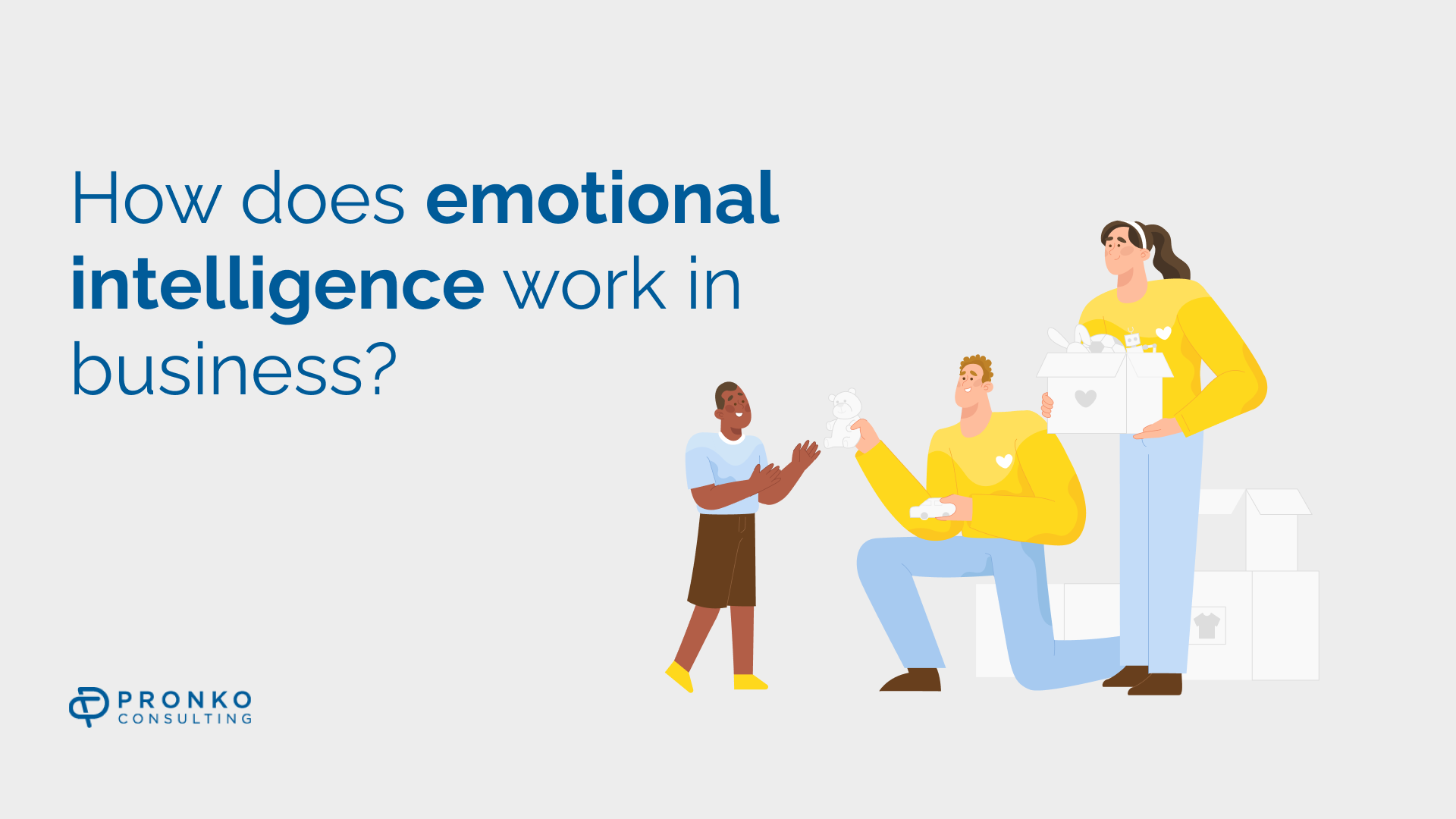The Power Of Emotional Intelligence In Business

EQ (emotional quotient), that is, the coefficient of emotional intelligence, on the same level as IQ (intelligence quotient) is one of the determining factors in shaping the success of individuals and companies. EQ is believed to have a strong relationship with a person's performance in business and influence how they see themselves and others. What is emotional intelligence? How can it be used for business development?
What is emotional intelligence?
Emotional intelligence is finding a connection between your feelings and those of other people, shaping their reactions, and interacting more effectively. The theory of the existence of emotional intelligence was first developed in the 1980s by Peter Salovey and John D. Mayer. They refute the idea that expressing emotions while working is unprofessional. The authors of the theory disagree that it is necessary to control one's feelings, especially company managers, carefully.
Since the brain's emotional centers are an integral part of thinking, they are necessary for people to make good decisions, adapt to changes more quickly, and achieve success. Emotional intelligence involves the ability to monitor one's and others' emotions, distinguish between them, and use this information to guide one's thoughts and actions. Researchers have found that people with strong leadership potential tend to be known for emotional intelligence, suggesting that a high EQ is an essential quality for business leaders and managers.
For example, one insurance company uses EQ tests as a hiring process. When analyzing the test results, it was found that EQ plays a vital role in sales success. Sales agents who scored low on emotional intelligence sold only $54,000 worth of policies, and managers with high EQ scores sold an average of $114,000 cost of approaches over the same period. So, a sales manager's emotional abilities (empathy, initiative, self-confidence) influence customers' choices when they decide to buy a product or service. The skill of emotional intelligence is not something a person is born with; it is learned through daily interactions with people and regular introspection. How can you know or improve your EQ? Peter Salovey and John D. Mayer have developed four skills to build.
4 skills for developing emotional intelligence
A reasonable approach to emotions includes the following skills:
Try to notice what the people you work with are feeling. Their emotions contain data that signal you about important events happening in the surrounding or inner world. It is essential not only to monitor the emotional state of others but also to learn to convey and express your emotions accurately. It is necessary for more effective communication and cooperation. For example, find a colleague who needs help with a project. Empathy is the foundation of EQ, which can be demonstrated when you help someone without receiving anything in return.
Try to focus on positive moments and cheer yourself up. It affects how we think and what we think about. Positive emotions help to manage thinking processes when solving problems effectively. In particular, reading literature helps distract oneself from negative moments and lets one get acquainted with another perspective. It is an excellent tool for teaching emotional intelligence, significantly when the opinions in the book differ from personal experience.
Predict the emotional state in the future. Emotions do not arise by chance; they have underlying causes and change according to a set of rules so they can be predicted. It is how the ability to conduct a dynamic analysis of cause-and-effect relationships develops.
Don't be afraid of emotions, whatever they may be. Such a skill will help to train wisdom before the appearance of any feelings.
Using these integrated skills, you can more effectively solve fundamental business problems.
What can be improved in business with the help of emotional intelligence?
Emotional intelligence will help businesses improve the following processes:
Identify problems between employees.
Managing the work of employees can take time, regardless of their number. Even if everyone tries to follow the same goal, each personality is naturally different. Using emotional intelligence means understanding the diversity of characters and responding accordingly to every possible challenge.
For example, some people speak before thinking, while others take time to process and understand before responding. To unite the team, you need to understand each person who works in the company to some extent. EQ helps determine what helps maximize colleagues' work engagement and increase its effectiveness.
A better understanding of the client's business goals.
Emotional intelligence and empathy are critical factors for business success. Understanding the client's current and long-term business goals is intellectually and emotionally essential, and it will allow him to offer the best possible solutions.
Empathize with the customer experience.
With EQ, companies can go beyond selling products and services and learn to empathize with the customer experience, whatever it may be. It can be a consultation and understanding of dissatisfaction, an adequate response to the customer's rudeness, etc. Putting yourself in the customer's shoes emotionally is a big step towards increasing customer loyalty.
For example, if a customer complains about the services or products provided by the company, the presence of high emotional intelligence will not allow the employee to defend himself with refusals. Instead, it is an opportunity to find ways to solve the problem, as well as a chance to learn about service deficiencies and adjust business processes. Using emotional intelligence can prevent many conflicts, remain professional and reduce stress.
Is IQ or EQ more important in business?
These two indicators are critical for business development, but they measure entirely different aspects of a person. For example, IQ emphasizes logic, knowledge, and memory, so a high IQ in your employees is helpful for research, extensive data analysis, and finance-related tasks. EQ is responsible for intuition, creativity, and empathy, and it is more subjective and helps with teamwork, leadership, and negotiation.
Whether you're looking to increase creativity or work more efficiently, emotional intelligence and mental development are helpful tools. You can improve your ability to solve business problems and generate valuable ideas.
